QuestionOur 4 month old JRT named Tucker just picked up a very nasty and secretive habit. Tucker has done very well with crate training so far and was letting us know when he needed to go outside to relieve himself. About a week and a half ago, we noticed that he was eating his own feces whenever he had an accident in the house. Right away we researched the topic and decided to try adding a tbsp of pumpkin to his dry puppy food which was recommended on several websites. Tucker has never attempted to eat feces (his own or any other dogs) while outside so we think he is trying to cover up for his accidents. We do not scold or punish him for accidents in the house and always try to take him out as soon as one is found in the house. Do you have any other suggestions for us to try?
AnswerHi Lindsey Ann,
The condition that you are refering to is called Coprophagia. It's really disgusting to we humans but in the dog world it's not such a bad or serious thing. I found this great article and I am pasting it here for you to read. It answers a lot of questions on the subject. I hope it helps you.
Coprophagia
When the weather gets colder increased numbers of coprophagia or stool eating cases occur. From the human standpoint this is a very disgusting habit, but from the dog's point of view it is a very normal behavior in some circumstances. Bitches will eat the feces and urine of their puppies during the first few weeks of their life. This keeps the whelping box clean. Many adult wild dog species must consume dropping during trying times in their environment to survive. Modern commercial diets are loaded with nutrition that will not be 100% digested on first passage. Cat feces is especially true of this. Puppies too will often eat their own feces. It's considered normal exploration behavior on the part of the puppy, similar to a human infant's first attempt at "finger painting". Most puppies will stop eating feces after they reach one year of age but some never kick the habit.
Gastrointestinal medical problems should be ruled out as a cause for this problem. A maldigestion or malabsorption syndrome may result in nutrients in the food to pass through the dog's intestinal tract virtually unchanged. Since a dog with this type of problem is chronically hungry, the stool may serve as a "between meal snack."
Dogs that eat feces often have problems with periodontal disease caused by the stool adhering to their teeth. Stool eating rarely causes any other medical problems except when the feces eaten is from other animals that have parasites.
The reasons why healthy dogs eat their own feces are unknown but some guesses can be made. The dog may be imitating the owner's behavior of picking up the feces. Stool eating may be an attention getting behavior especially if it gets the owner to play in a game of "keep away". Dogs that are fed once daily may be hungry and find that feces fills them up between meals. The mouth feel of the feces serves as a major component of palatability for the dog. Frozen stool or dry firm stool produced from feeding high fiber dog foods is usually more tempting for the dog to pick up. Soft stool is usually avoided by the coprophagic dog.
Coprophagia can be handled several ways. The easiest thing to do, which most owners refuse to do, is to walk the dog on a leash so that the dog can be immediately taken away from his feces. After the dog has been put back into the house the stool should be picked up and disposed of. Allowing the dog to see the stool being removed may lead to a game of keep away. This becomes a vice of many dogs that are bored, usually those that are isolated in the backyard and provided with few toys and little owner interaction. Leash walks and play time with the owner on a regular schedule will help alleviate some of the environmental stress that resulted in this redirected behavior problem.
I have found that punishment is rarely successful. Many sources recommend adding meat tenderizer to the food to change the taste of the stool when it is passed. A commercial enzyme powder called FORBID has been marketed to be fed to dogs to make the stool foul tasting. Meat tenderizer and FORBID are rarely effective at stopping this behavior. Sprinkling hot pepper on the stool has also been recommended. This must be applied to every bowel movement or the dog will just learn to eat the " untreated" feces. In fact this type of intermittent reward system (i.e. the periodic ingestion of untreated stool) may make the behavior even harder to stop. I have been told that adding Certs to the dog's diet makes the stool taste terrible. This seldom works but it may improve their breath!
A diet change is often the only thing that helps these dogs. The diet of coprophagic dogs should gradually be changed to a canned dog food diet. Vegetable oil should be slowly added to their diet until they are ingesting about one tablespoon for every ten pounds of body weight. The dog should not receive any treats or table scraps and should be fed on a regular twice a day schedule. Sometimes just a month or two of this high fat, high protein, low carbohydrate diet will change the dog's behavior.
Other tricks of the trade with diet modifications include the adding of cooked or fresh vegetables to the regular food. Its doubtful that a deficiency is being treated, rather a change in the routine and texture of the diet is more likely the reason it works. Some have claimed that an addition of powdered bone meal on the regular diet will discourage the habit too.

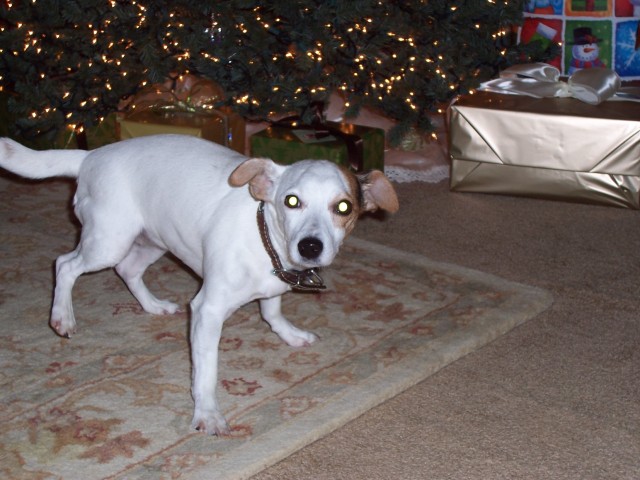 Jack Russell w/ Equiliberum problem
Question
Suzy Q
I have a 10 year old JR who has not bee
Jack Russell w/ Equiliberum problem
Question
Suzy Q
I have a 10 year old JR who has not bee
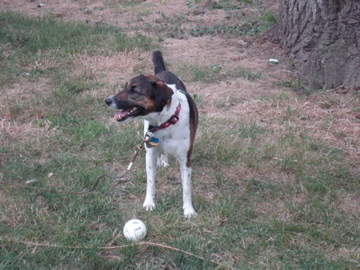 Parsons Jack Russell Aggression
Question
Padame
My family and I adopted a female JRT (P
Parsons Jack Russell Aggression
Question
Padame
My family and I adopted a female JRT (P
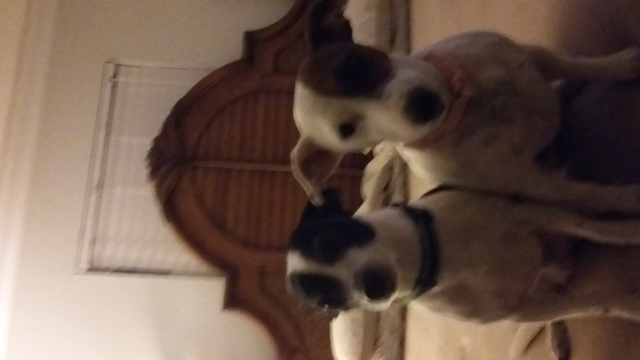 Purebred
Question
Coco 2 1/2 yes old swe No 5yrs old pureb
Purebred
Question
Coco 2 1/2 yes old swe No 5yrs old pureb
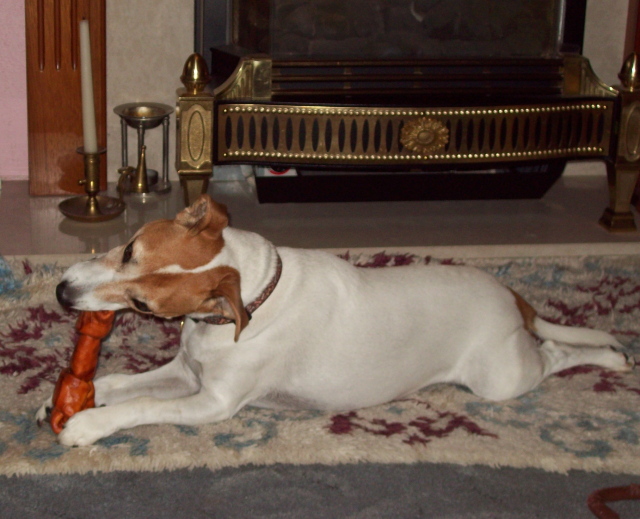 Parson Jack Russell Terrier bitch
Question
Pippa
My PJR bitch was 5 last December. She ha
Parson Jack Russell Terrier bitch
Question
Pippa
My PJR bitch was 5 last December. She ha
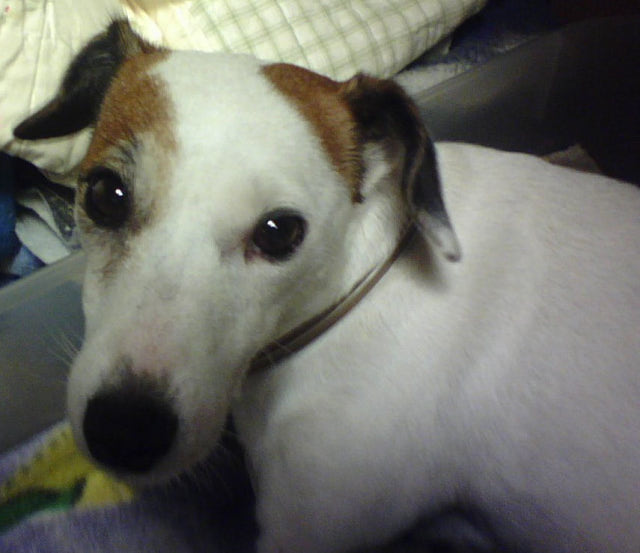 JRT heat cycle
QuestionQUESTION: Hello and thank you for taking the ti
JRT heat cycle
QuestionQUESTION: Hello and thank you for taking the ti